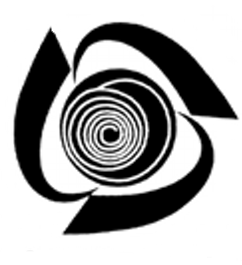You are here
Process Systems Engineering (PSE) Conference - 2000
PSE 2000 is the seventh in the triennial series of international symposia on process systems engineering initiated in 1982. The purpose of the meeting was to bring together the community of researchers and practitioners who are involved in the creation and application of computing-based methodologies for planning, design, operation, control; and maintenance of chemical processes. The special focus of PSE meetings is on the integration of the enabling technologies and application domains to address the special needs of the chemical process industries. Particular emphasis is given to the interfaces between application domains and the adaptation of process systems methodologies to nontraditional problem areas.
The composition of the meeting was international by design, with representation from the three main geographic zones of Asia and the Pacific, Europe and Africa, and the Americas. The conference was initiated by the Executive Committee of the Process Systems Engineering Symposium Series which draws its representation from the Asian Pacific Confederation of Chemical Engineering, the European Federation of Chemical Engineering, and the Inter American Confederation of Chemical Engineering. In keeping with the international scope of the conference series, the previous conferences were held in Trondheim, Norway (1997), Kyongju, Korea (1994), Montebello, Canada (1991), Sydney, Australia (1988), Cambridge, England (1985), and Kyoto, Japan (1982). PSE 2000 constitutes the first instance in the conference series to be convened in the USA.
The program features five keynote and 15 plenary papers, as well as 215 regular conference papers. The plenary papers were selected by the International Program Committee from among the contributed papers on the basis of merit and relevance. The papers are organized in the following themes: Process Synthesis, Process Control, Planning & Scheduling, Modeling & Simulation, Product Development, Safety, Monitoring, & Fault Detection, Novel Systems Applications & Extensions, Control Integration & Applications, Process Operation & Optimization, Simulation & Design Applications, Education in Process systems Engineering, Operations & Optimization Applications.
The PSE conference series is conducted under the auspices of the Executive Committee for PSE, chaired by Professor I. Hashimoto, Kyoto University. The Committee members are:
J. Perkins, Imperial College, United Kingdom
G. V. Rek1aitis, Purdue University, USA
S. Skogestad, Norwegian University of Science & Technology, Norway
K. S. Chang, Pohang University of Science & Technology, Korea
G. Sullivan, University of Waterloo, Canada
Selected Table of Contents
Manufacturing and the internet-we haven't seen anything yet!
Russel McMeekin
Planning, scheduling and control systems: why can they not work together
Donald E. Shobrys, Douglas C. White
Comparison of statistical process monitoring methods: application to the Eastman challenge problem
Manabu Kano, Koji Nagao, Shinji Hasebe, Iori Hashimoto, Hiromu Ohno, Ramon Strauss, Bhavik Bakshi
On-line optimization via off-line parametric optimization tools
Efstratios N. Pistikopoulos, Vivek Dua, Nikolaos A. Bozinis, Alberto Bemporad, Manfred Morari
Incorporation of dynamic behaviour in an automated process synthesis system
E.S. Fraga, J. Hagemann, A. Estrada-Villagrana, I.D.L. Bogle
The two-level strategy for MINLP synthesis of process flowsheets under uncertainty
Zorka Novak Pintari, Zdravko Kravanja
Challenges for process systems engineering in infrastructure design
Paulien M. Herder, Adam L. Turk, Eswaran Subrahmanian, Arthur W. Westerberg
For the complete Table of Contents of over 200 papers, go to COMPUTERS & CHEMICAL ENGINEERING, click on "Table of Contents" under "For Readers" on right side of screen, then click on "Volume 24, Issue 2-7."
Theme by Danetsoft and Danang Probo Sayekti inspired by Maksimer



